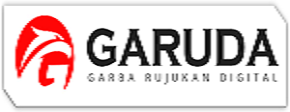Transformasi Model Bisnis Museum Ke Pariwisata Digital Di Indonesia
DOI:
https://doi.org/10.30587/jurnalmanajerial.v10i02.4850Keywords:
Digital, Tourism, Innovation, Museums, Transformation, BusinessAbstract
Background – Because of the Covid-19 pandemic, human travel was severely restricted and reliant on digital technology. Tourism is one of the businesses that has been obliged to adapt to digitalization in order to keep its primary source of income from travelers. The present transition to digital tourism is taking the shape of virtual tours or long-distance interactive tours, such as those seen in museums. To reach more tourists, some museums in Indonesia already entered the digitization stage by offering virtual tours and edutainment.
Aim – This study intends to provide emphasis on the advantages and disadvantages of disruptive innovation in the sense of digitization in the tourism industry, particularly museums.
Design / Methodology / Approach – An detailed review of existing literature regarding digital technology, disruptive digital innovation, smartphone technology, social media, internet, and mobile applications from the perspective of museum tourism was used.
Findings – Digital museums provide a new perspective to enjoy their collections and as a diversification strategy that has the potential to bring in tourists virtually. Curators should develop websites using communication strategies that relate to their collection and focus on their visitor profile. On the other hand, there is a risk that there is a conservative opinion that digitization will reduce the integrity of physical artwork and an unstable digital ecosystem.
Conclusion - The digitization and publication of collections online has the potential to enable access to content. It is projected that disruptive innovation in the form of changing the museum's business model will provide financial benefits and become a business diversification that can support the sustainability of the museum itself in the future.
Research implication – In the field of management, disruptive innovation in the form of changing the museum's business model will provide financial benefits and become a business diversification that can support the sustainability of the museum itself in the future. In the field of architecture, the preservation of cultural heritage objects through digitization guarantees digital archives and provides wider educational opportunities virtually.
Research Limitations – The breadth of coverage regarding the digitization of museums and also the many things that still need to be done in order to implement it perfectly, makes research on digitization will continue to be needed. Future studies can complement and continue to update research results so that museums can also continue to evolve.
References
Aurindo, M. J., & Machado, C. (2016). Muvitur® (Virtual museum of tourism): A new approach to tourism history. Journal of Tourism History, 8(3), 300–309. https://doi.org/10.1080/1755182X.2017.1288763
Beck, J., Rainoldi, M., & Egger, R. (2019). Virtual reality in tourism: a state-of-the-art review. Tourism Review, 74(3), 586–612. https://doi.org/10.1108/TR-03-2017-0049/FULL/PDF
Buhalis, D., Andreu, L., & Gnoth, J. (2020). The dark side of the sharing economy: Balancing value co-creation and value co-destruction. Psychology and Marketing, 37(5), 689–704. https://doi.org/10.1002/mar.21344
Cheng, M. (2016). Sharing economy: A review and agenda for future research. International Journal of Hospitality Management, 57, 60–70. https://doi.org/10.1016/J.IJHM.2016.06.003
Chhabra, D. (2009). Proposing a sustainable marketing framework for heritage tourism. Https://Doi.Org/10.1080/09669580802495758, 17(3), 303–320. https://doi.org/10.1080/09669580802495758
Chim-Miki, A. F., Medina-Brito, P., & Batista-Canino, R. M. (2019). Integrated Management in Tourism: The Role of Coopetition. Https://Doi.Org/10.1080/21568316.2019.1574888, 17(2), 127–146. https://doi.org/10.1080/21568316.2019.1574888
Christensen, C. M. (1997). Marketing strategy: learning by doing. Harvard Business Review, 75(6), 141–151. https://go.gale.com/ps/i.do?p=AONE&sw=w&issn=00178012&v=2.1&it=r&id=GALE%7CA20158673&sid=googleScholar&linkaccess=fulltext
Christensen, C. M., McDonald, R., Altman, E. J., & Palmer, J. E. (2018). Disruptive Innovation: An Intellectual History and Directions for Future Research. Journal of Management Studies, 55(7), 1043–1078. https://doi.org/10.1111/JOMS.12349
Christensen, C. M., & Raynor, M. E. (2003). Why Hard-Nosed Executives Should Care About Management Theory. Harvard Business Review, 81(9).
Christensen, C. M., Raynor, M. E., Rory, M., & McDonald, R. (2015). What is disruptive innovation? Harvard Business Review, 93(12), 44–53. https://hbr.org/2015/12/what-is-disruptive-innovation
Clawson, M., & Knetsch, J. L. (2013). Economics of Outdoor Recreation. In Economics of Outdoor Recreation. https://doi.org/10.4324/9781315064215
Coca-Stefaniak, J. A. (2020). Beyond smart tourism cities – towards a new generation of “wise” tourism destinations. Journal of Tourism Futures, 7(2), 251–258. https://doi.org/10.1108/JTF-11-2019-0130/FULL/PDF
Cong, L., Wang, Q., Wall, G., & Su, Y. (2021). Decision-making behavior and risk perception of chinese female wildlife tourists. Sustainability (Switzerland), 13(18). https://doi.org/10.3390/su131810301
Elo, S., & Kyngäs, H. (2008). The qualitative content analysis process. Journal of Advanced Nursing, 62(1), 107–115. https://doi.org/10.1111/J.1365-2648.2007.04569.X
Enhance museums with innovative technologies - Viewar. (n.d.). Retrieved November 19, 2022, from https://www.viewar.com/industries/museum/#top
Fusté-Forné, F. (2019). Mapping heritage digitally for tourism: an example of Vall de Boí, Catalonia, Spain. Https://Doi.Org/10.1080/1743873X.2019.1700264, 15(5), 580–590. https://doi.org/10.1080/1743873X.2019.1700264
Gofman, A., Moskowitz, H. R., & Mets, T. (2011). Marketing Museums and Exhibitions: What Drives the Interest of Young People. Http://Dx.Doi.Org/10.1080/19368623.2011.577696, 20(6), 601–618. https://doi.org/10.1080/19368623.2011.577696
Guttentag, D. (2013). Airbnb: disruptive innovation and the rise of an informal tourism accommodation sector. Https://Doi.Org/10.1080/13683500.2013.827159, 18(12), 1192–1217. https://doi.org/10.1080/13683500.2013.827159
Hopp, C., Antons, D., Kaminski, J., & Oliver Salge, T. (2018). Disruptive Innovation: Conceptual Foundations, Empirical Evidence, and Research Opportunities in the Digital Age. Journal of Product Innovation Management, 35(3), 446–457. https://doi.org/10.1111/jpim.12448
Hughes, K., & Moscardo, G. (2019). ICT and the future of tourist management. Journal of Tourism Futures, 5(3), 228–240. https://doi.org/10.1108/JTF-12-2018-0072/FULL/PDF
James Manyika, Chui, M., Bughin, J., Dobbs, R., Bisson, P., & Marrs, A. (2013). Disruptive technologies: Advances that will transform life, business, and the global economy. McKinsey Global Institute, 180`, 17–21.
Kayumovich, K. O. (2020). Prospects of Digital Tourism Development. Department of Service Sphere Economics, Bukhara State University, Bukhara, Republic of Uzbekistan, 23–24. https://cyberleninka.ru/article/n/prospects-of-digital-tourism-development
Li, B., Zhong, Y. Y., Zhang, T., & Hua, N. (2021). Transcending the COVID-19 crisis: Business resilience and innovation of the restaurant industry in China. Journal of Hospitality and Tourism Management, 49(August), 44–53. https://doi.org/10.1016/j.jhtm.2021.08.024
Macbeth, J. (2020). Archaeology and tourism: touring the past. Https://Doi.Org/10.1080/1743873X.2020.1822623, 16(1), 118–119. https://doi.org/10.1080/1743873X.2020.1822623
Maingi, S. W. (2020). Case study 6: Mainstreaming overtourism education for sustainable behavioral change in kenya’s tourism industry context. Overtourism: Causes, Implications and Solutions, 383–399. https://doi.org/10.1007/978-3-030-42458-9_20/COVER
Nagy, D., Schuessler, J., & Dubinsky, A. (2016). Defining and identifying disruptive innovations. Industrial Marketing Management, 57, 119–126. https://doi.org/10.1016/J.INDMARMAN.2015.11.017
Neuhofer, B., Buhalis, D., & Ladkin, A. (2014). A Typology of Technology-Enhanced Tourism Experiences. International Journal of Tourism Research, 16(4), 340–350. https://doi.org/10.1002/JTR.1958
Pencarelli, T. (2020). The digital revolution in the travel and tourism industry. Information Technology and Tourism, 22(3), 455–476. https://doi.org/10.1007/S40558-019-00160-3/TABLES/1
Poux, F., Valembois, Q., Mattes, C., Kobbelt, L., & Billen, R. (2020). Initial User-Centered Design of a Virtual Reality Heritage System: Applications for Digital Tourism. Remote Sensing 2020, Vol. 12, Page 2583, 12(16), 2583. https://doi.org/10.3390/RS12162583
Shan, P., Song, M., & Ju, X. (2016). Entrepreneurial orientation and performance: Is innovation speed a missing link? Journal of Business Research, 69(2), 683–690. https://doi.org/10.1016/J.JBUSRES.2015.08.032
Slater, M., & Sanchez-Vives, M. V. (2016). Enhancing our lives with immersive virtual reality. Frontiers Robotics AI, 3(DEC), 74. https://doi.org/10.3389/FROBT.2016.00074/BIBTEX
Souto, J. E. (2015). Business model innovation and business concept innovation as the context of incremental innovation and radical innovation. Tourism Management, 51, 142–155. https://doi.org/10.1016/J.TOURMAN.2015.05.017
van Nuenen, T., & Scarles, C. (2021). Advancements in technology and digital media in tourism. Tourist Studies, 21(1), 119–132. https://doi.org/10.1177/1468797621990410
Werthner, H., Alzua-Sorzabal, A., Cantoni, L., Dickinger, A., Gretzel, U., Jannach, D., Neidhardt, J., Pröll, B., Ricci, F., Scaglione, M., Stangl, B., Stock, O., & Zanker, M. (2015). Future research issues in IT and tourism: A manifesto as a result of the JITT workshop in June 2014, Vienna. Information Technology and Tourism, 15(1), 1–15. https://doi.org/10.1007/S40558-014-0021-9/FIGURES/1
Williamson, P. J., Wan, F., Eden, Y., & Linan, L. (2020). Is disruptive innovation in emerging economies different? Evidence from China. Journal of Engineering and Technology Management, 57, 101590. https://doi.org/10.1016/J.JENGTECMAN.2020.101590
Yoo, S. W., Kim, J., & Lee, Y. (2018). The Effect of Health Beliefs, Media Perceptions, and Communicative Behaviors on Health Behavioral Intention: An Integrated Health Campaign Model on Social Media. Health Communication, 33(1), 32–40. https://doi.org/10.1080/10410236.2016.1242033






























 P-ISSN: 2354-8592 __ E-ISSN: 2621-5055
P-ISSN: 2354-8592 __ E-ISSN: 2621-5055 
